INTERNACIONAL
Los sorprendentes y peligrosos métodos médicos de la antigua Roma

La antigua Roma fue testigo de un desarrollo médico que, aunque innovador para su tiempo, resulta impactante bajo la lente de la modernidad.
Según History Extra, los médicos romanos, carentes de normas reguladoras y equipados con conocimientos limitados, implementaron técnicas de sanación que, si bien salvaban vidas, también implicaban dolorosos procedimientos sin el alivio de anestesia.
Estas prácticas reflejan un enfoque pionero, pero a menudo brutal y ciertamente peligroso.
Uno de los aspectos más fascinantes de la medicina romana fue el intento de revertir la circuncisión. Este procedimiento se realizaba principalmente entre hombres de origen judío u oriental que buscaban integrarse mejor en la sociedad romana, donde la apariencia era un factor crucial.
El método consistía en hacer una incisión en la piel y aplicar pesos para estirar gradualmente el prepucio, lo que representaba un proceso extremadamente doloroso y prolongado.
La doctora Patty Baker, una historiadora citada por History Extra, explicó que el deseo de encajar en el ideal romano justificaba este doloroso procedimiento.

El parto en la antigua Roma era una experiencia extremadamente riesgosa. Según el artículo, en casos en los que el bebé fallecía durante el trabajo de parto, los médicos realizaban una “embriotomía” para salvar a la madre.
Este procedimiento consistía en la extracción del feto, a menudo desmembrando el cuerpo del bebé para facilitar su extracción. La historiadora Baker detalla que, aunque esta cirugía era horripilante desde una perspectiva moderna, ofrecía una de las pocas oportunidades para preservar la vida materna.
History Extra también evidencia cómo los romanos abordaban cirugías sin el beneficio de anestésicos modernos. Las amputaciones constituían procedimientos comunes, realizados con el paciente plenamente consciente y sólo suavizados por remedios herbales rudimentarios.
Baker destaca que algunos textos discutían el uso de opiáceos rudimentarios, pero en su mayoría recurrían al consumo de vino para calmar a quienes se sometían a cirugía.
Esto convertía las operaciones en verdaderas carreras contra el tiempo, donde el equilibrio entre velocidad y precisión era crucial. El escritor Celsus, citado por Dr. Baker, subrayaba que un cirujano debía poder operar rápidamente para disminuir el dolor del paciente.

Uno de los problemas medulares en la práctica médica romana era la falta de reglamentación. Cualquier individuo podía proclamarse médico, independientemente de su formación o capacidades. Según History Extra, este vacío regulador permitía que doctores incompetentes evadieran responsabilidades al huir después de un procedimiento fallido.
Esto creaba un escenario comparado con el “Viejo Oeste”, donde los pacientes quedaban a merced de personas que sus habilidades y conocimientos eran tan diversos como inciertos.
La obsesión romana con la limpieza es otro aspecto resaltado en el informe. Los romanos construyeron sofisticados sistemas de saneamiento, pero no comprendían la teoría microbiana moderna. Baker explicó que las medidas higiénicas se basaban en la creencia en el “miasma”, la idea de que el mal olor era la causa de las enfermedades.
Sin embargo, se alentaba la limpieza de heridas con sustancias antisépticas conocidas como el vino y la miel, pese a su desconocimiento del concepto de gérmenes.

El arte médico romano revela una civilización dispuesta a traspasar límites en busca de la sanación, utilizando métodos que mezclaban innovación y brutalidad. Aunque sus prácticas resultan impactantes, su ingenio sentó las bases para avances futuros.
El medio concluye afirmando que la medicina romana sigue siendo motivo de asombro y reflexión sobre la capacidad de la humanidad para adaptarse y evolucionar en la búsqueda del bienestar.
roma
INTERNACIONAL
Ataques de Israel: al menos 31 palestinos mueren cuando se dirigían a un centro de ayuda en Gaza

Un nuevo sistema de ayuda marcado por el caos
“La escena era horrible”
Israel,Franja de Gaza,Hamas
INTERNACIONAL
Doubt cast on Hamas-run ministry’s claim that dozens killed collecting aid sent by Israel

At least 26 Palestinians were reportedly killed and some 175 were wounded as they made their way to receive food in the Gaza Strip, according to officials from the Hamas-run health ministry and witnesses, but Israeli officials dispute these claims.
Witnesses said Israeli forces fired on crowds around 1,000 yards away from an aid site run by the Israeli-backed Gaza Humanitarian Foundation (GHF). A Palestinian journalist told the BBC that thousands of Palestinians had gathered near the aid site near Gaza’s southern city of Rafah when Israeli tanks approached and opened fire on the crowd.
The Israeli Defense Forces said it is «currently unaware of injuries caused by IDF fire within the Humanitarian Aid distribution site,» adding that «the matter is still under review.»
«It is false and fabricated. All aid was distributed today without incident,» the GHF said. «No injuries or fatalities as noted in our daily update sent out earlier. We have heard that these fake reports have been actively fomented by Hamas. They are untrue and fabricated.»
The GHF has denied previous accounts of chaos and gunfire around its sites, which are in Israeli military zones where independent access is limited.
ISRAEL HOSTAGE DEAL IN DOUBT AS HAMAS ADDS DEMANDS, US ENVOY CALLS TERMS ‘UNACCEPTABLE’
Palestinians carry bags containing food and humanitarian aid packages delivered by the Gaza Humanitarian Foundation, in Khan Younis, southern Gaza Strip, Sunday, June 1, 2025. (AP)
In its statement, the foundation dismissed what it referred to as «false reporting about deaths, mass injuries and chaos.»
The organization’s distribution of aid has been marred by chaos, with multiple witnesses having said Israeli troops fired on crowds near the delivery sites. Before Sunday, at least six people had been killed and more than 50 wounded, according to local health officials.
The foundation says the private security contractors guarding its sites have not fired on the crowds. The Israeli military has said it fired warning shots in previous incidents.
As thousands of people headed toward the distribution site hours before dawn, Israeli forces ordered them to disperse and return later, witnesses said. When the crowds reached the Flag Roundabout, around 1,000 yards away, at around 3 a.m., the military opened fire, the witnesses said.
«There was fire from all directions, from naval warships, from tanks and drones,» Amr Abu Teiba, who was in the crowd, said.

Palestinians carry boxes and bags containing food and humanitarian aid packages delivered by the Gaza Humanitarian Foundation, in Khan Younis, Sunday, June 1, 2025. (AP)
He said he observed at least 10 bodies with gunshot wounds and several other wounded people, including women. People used carts to carry the victims to the field hospital.
Another witness, Ibrahim Abu Saoud, gave a nearly identical account. Abu Saoud said he saw many people with gunshot wounds, including a young man who he said had died at the scene.
Mohammed Abu Teaima said he saw Israeli forces open fire and kill his cousin and another woman as they were on their way to the distribution site. He said his cousin was shot in his chest and died at the scene, while many others were wounded, including his brother-in-law.
«They opened heavy fire directly towards us,» he said.
HUCKABEE SLAMS FRENCH-BACKED PALESTINIAN STATEHOOD PUSH AT UN, SAYS US-ISRAEL ARE ‘INSEPARABLY’ LINKED

Smoke rises following an Israeli army bombardment in the Gaza Strip, seen from southern Israel, Sunday, June 1, 2025. (AP)
CLICK HERE TO GET THE FOX NEWS APP
Israel and the U.S., which also backs the foundation, say the new aid system seeks to prevent Hamas from taking away aid. Israel has not provided any evidence of systematic diversion and the U.N. denies it has happened.
U.N. agencies and major aid groups have refused to work with the new system, arguing that it violates humanitarian principles since it allows Israel to control who receives aid and forces people to relocate to distribution sites.
The U.N. system has struggled to bring in aid after Israel recently slightly eased its total blockade of the territory. The groups say Israel’s restrictions, the breakdown of law and order and widespread looting make it extremely difficult to deliver aid to Palestinians in Gaza.
The Associated Press contributed to this report.
INTERNACIONAL
US can’t cut China off completely, but must defend AI and American innovation from nonstop theft: Sen Rounds
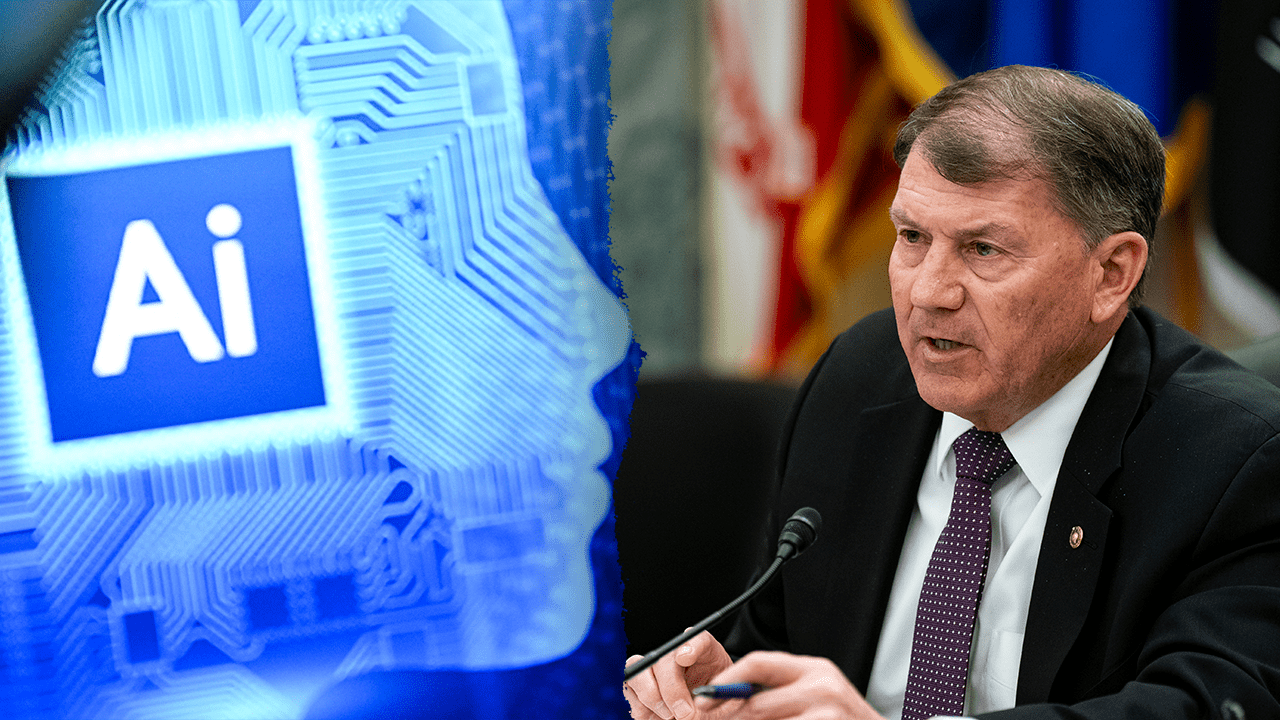
SIMI VALLEY, CALIFORNIA – China’s rampant theft of intellectual property from American institutions and industry must be thwarted as the U.S. battles to remain the world’s economic and military leader – but America cannot completely decouple from the economic behemoth, Republican South Dakota Sen. Mike Rounds told Fox News Digital in an exclusive interview.
The key, according to Rounds, is maintaining China as a key trade partner without giving them access to America’s technology, including artificial intelligence and computer chips.
«In doing so, maybe we’ll restrict their ability to actually be able to have a market that they can create their own stuff with. They’ll be using ours. And in using ours, they’ll be our standards,» Rounds told Fox News Digital in an exclusive interview from the Ronald Reagan Presidential Library during the Reagan National Economic Forum on Friday in California.
«Let’s not necessarily just totally divest. Let’s see if we can have an influence on them and the rest of the world as well when it comes to standards for AI and other technological advances in the future,» he added.
Rounds was among the conference panelists who spoke on the threats China poses as President Donald Trump addresses the country’s chronic trade deficit with foreign nations, and his optimism for the future as the U.S. sprints to remain the world’s economic and military leader.
SPY SURGE SPARKS TRUMP VISA CRACKDOWN ON CHINESE STUDENTS
South Dakota Sen. Mike Rounds was a panelist for the inaugural Reagan National Economic Forum in California. (Getty Images)
Rounds’ remarks focused on keeping the U.S. in the driver’s seat of the world’s economy, which he explained is deeply entwined in technological advances and bucking Chinese theft of intellectual property, while also acknowledging and combating how China has advanced into a «near-peer competitor» with the U.S. from a military standpoint.
‘NO REASON’ FOR NEW NUKES: TRUMP FLOATS DISARMAMENT TALKS WITH CHINA, RUSSIA
«We’ve got to do a better job of protecting the intellectual properties that we’ve got. The most advanced types of technologies that we have, everything we can do to slow down their connection with that, protecting against that infiltration or de-filtration of really good information that, right now, they’re stealing from us on a regular basis,» Rounds said during a panel called «China and the U.S.: When Trading Partners are also Great Power Competitors.»

The Ronald Reagan Presidential Library in Simi Valley, California. (Fox News Digital )
He added that China has no qualms about stealing U.S. intellectual property – which is understood as intangible creations, such as patents for inventions or trade secrets such as tech algorithms. Rounds recalled a recent conversation with an ambassador to China who told him their culture does not understand «how someone can own an idea.»
Secretary of State Marco Rubio announced last Wednesday that the U.S. will begin «aggressively» revoking visas of Chinese students, most notably those with ties to the Chinese Communist Party who are trained at U.S. schools, but return to China or feed U.S. information to China.

China has stolen billions in intellectual property on an annual basis, Sen. Mike Rounds says. (Jakub Porzycki/NurPhoto via Getty Images)
Rounds said the country needed a pause on admitting Chinese nationals with CCP ties into elite U.S. schools until an enforceable agreement is in place protecting intellectual property and processes from Chinese capture.
«We have Chinese students that come in here, and then they [maintain] ties back home. And even if they want to stay here, one of the challenges we have is that their family may very well be coerced into requiring them to come back home again. And if that’s the case, any of the knowledge that we’ve helped them to develop here goes back home with them,» Rounds said.
«Until such time as we’re able to address that, and until such time as we’re able to be assured that the information that they’re getting here, the data that they are catching here, the knowledge that they gain here isn’t going to be used against our young men and women in the future, we want to slow this down a little bit. Let’s just take a break. Let’s not be bringing in these Chinese students that have ties with the Chinese Communist Party, until we have some kind of agreement in place that is enforceable,» he said.
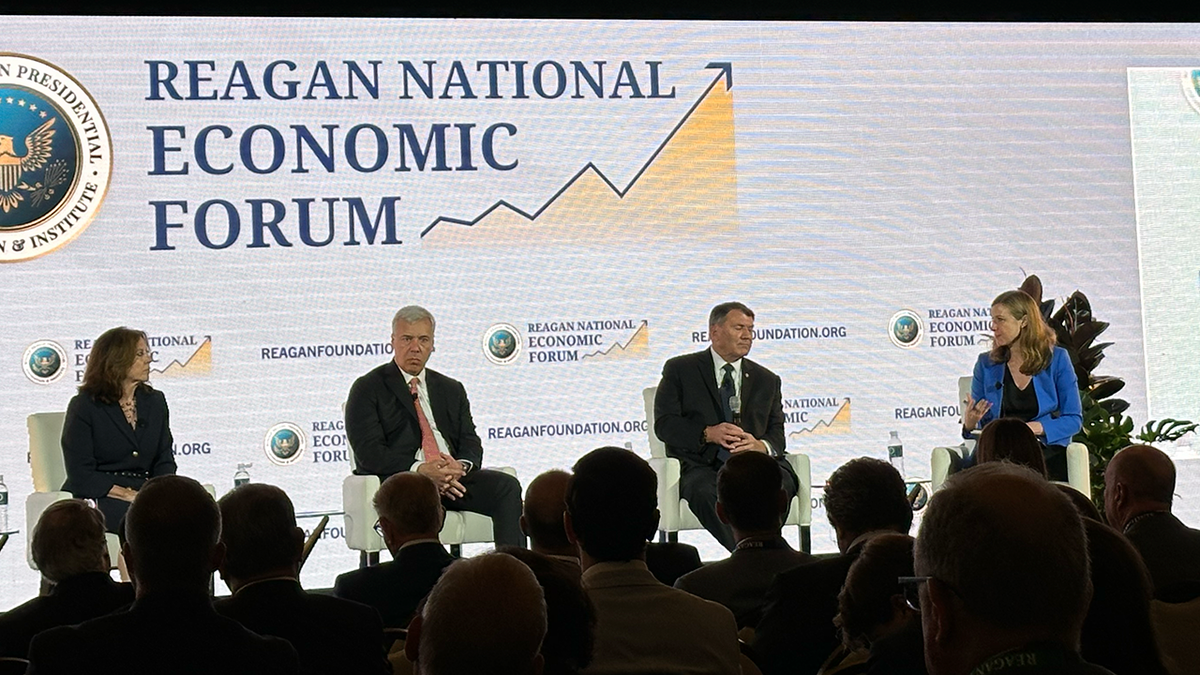
South Dakota Sen. Mike Rounds was a panelist for the inaugural Reagan National Economic Forum in California. (Fox News Digital )
Rounds explained during the Reagan library forum that protecting U.S. intellectual property from Chinese theft has a ripple effect on U.S. efforts to remain the world’s military leader as China seeks parity with America.
STATE DEPARTMENT SAYS IT WILL ‘AGGRESSIVELY REVOKE’ VISAS OF CHINESE STUDENTS
«[China is] a strategic challenger for us on the military side. They are a near-peer competitor. And they have an advantage over us in one particular way: They are unified in terms of when Xi Jinping wants to move, it’s not just the government that moves, but the entire rest of their economic activity is required to move the way that he wants them to move. We don’t have that here. And so for us, we have to recognize that challenge. Now, I’m not suggesting we go the direction that they go, but we have to recognize their ability to move very, very quickly,» he said.
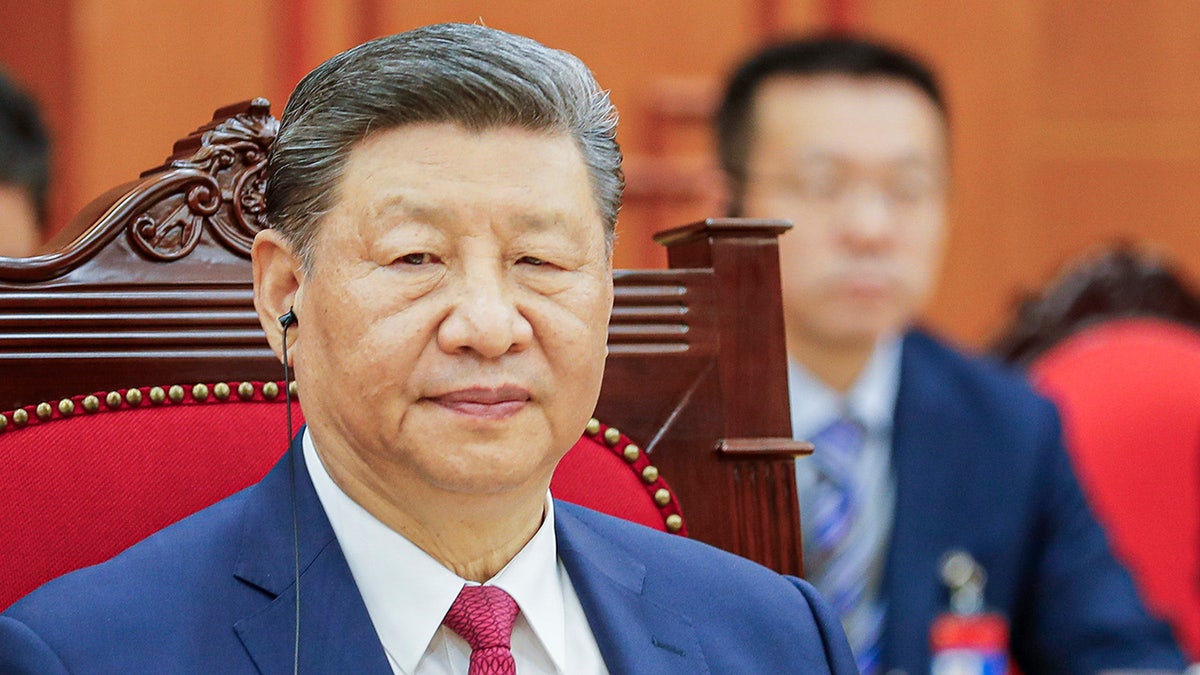
Chinese President Xi Jinping listens during a meeting in Hanoi, Vietnam, on April 14. (AP/Minh Hoang)
The Trump administration leveled tariffs as high as 145% on Chinese goods in April, and China retaliated against the president’s «Liberation Day» policies with tariffs of its own. China and the U.S. reached a preliminary trade agreement last month, which Trump said China violated in a Truth Social post on Friday.
TRUMP CALLS OUT PUTIN, ACCUSES CHINA OF NOT HONORING TRADE DEAL TERMS DURING 19TH WEEK IN OFFICE
«I made a FAST DEAL with China in order to save them from what I thought was going to be a very bad situation, and I didn’t want to see that happen. Because of this deal, everything quickly stabilized and China got back to business as usual. Everybody was happy! That is the good news!!! The bad news is that China, perhaps not surprisingly to some, HAS TOTALLY VIOLATED ITS AGREEMENT WITH US. So much for being Mr. NICE GUY!» he wrote.
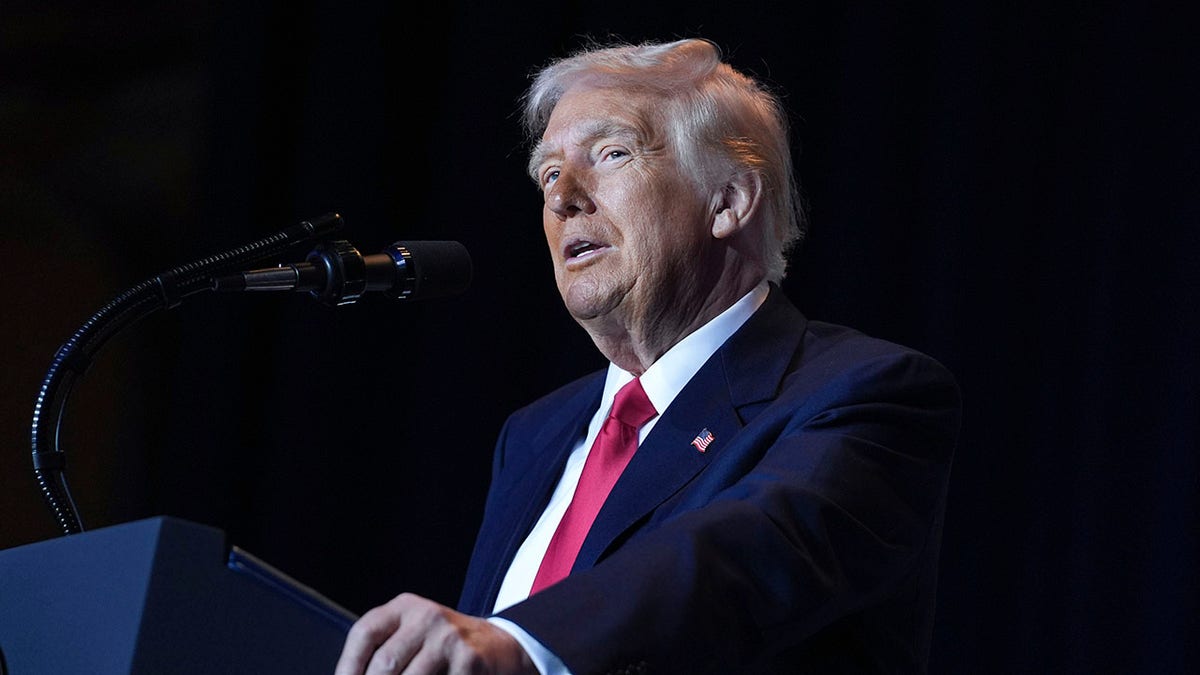
President Donald Trump speaks during the National Prayer Breakfast, Feb. 6, 2025, in Washington, D.C. (AP Photo/Evan Vucci)
Rounds explained that the U.S. is in the midst of reaching a favorable trade deal while also acknowledging China has stolen billions of dollars in intellectual property for its own advantage.
«We do, right now, really close to about a half a trillion dollars a year in economic activity with China today, but they steal about $600 billion in intellectual property on an annual basis. And so we have this dichotomy of trying to do good trade and at the same time recognizing that they’re stealing our property,» he said.
Rounds said the floodgates of accepting and leveraging AI have not yet opened in the U.S., as many Americans are still hesitant to trust the technology. In mere months and years, however, he said the health industry will see massive overhauls, aided by tech that can quickly identify cancer or diagnose diabetes and Alzheimer’s. This will lead American culture to accept AI and rally the private sector’s proliferation of it, he said.
HOUSE CHINA COMMITTEE ZEROS IN ON LATEST CCP EFFORTS TO STEAL AMERICAN AGRICULTURE IP
«I think what the American people want to see is, what’s in it for them? What improves their quality of life? I think one of the most critical issues – that would really be one of the easiest to get into – is talking about health care. And I firmly believe that Americans will see AI as a benefit to them rather than as a challenge when we start to see cures for diabetes, Alzheimer’s, Parkinson’s and cancers. And those are all within reach,» Rounds told Fox Digital.
Rounds added during the forum that when Americans personally feel how their quality of life has improved due to AI, «that’s when we’ll really see the push across the country to develop AI at a rate that you’ve never seen before by the private sector, as well.»
«That’s what’s going to keep us ahead of China,» he said.
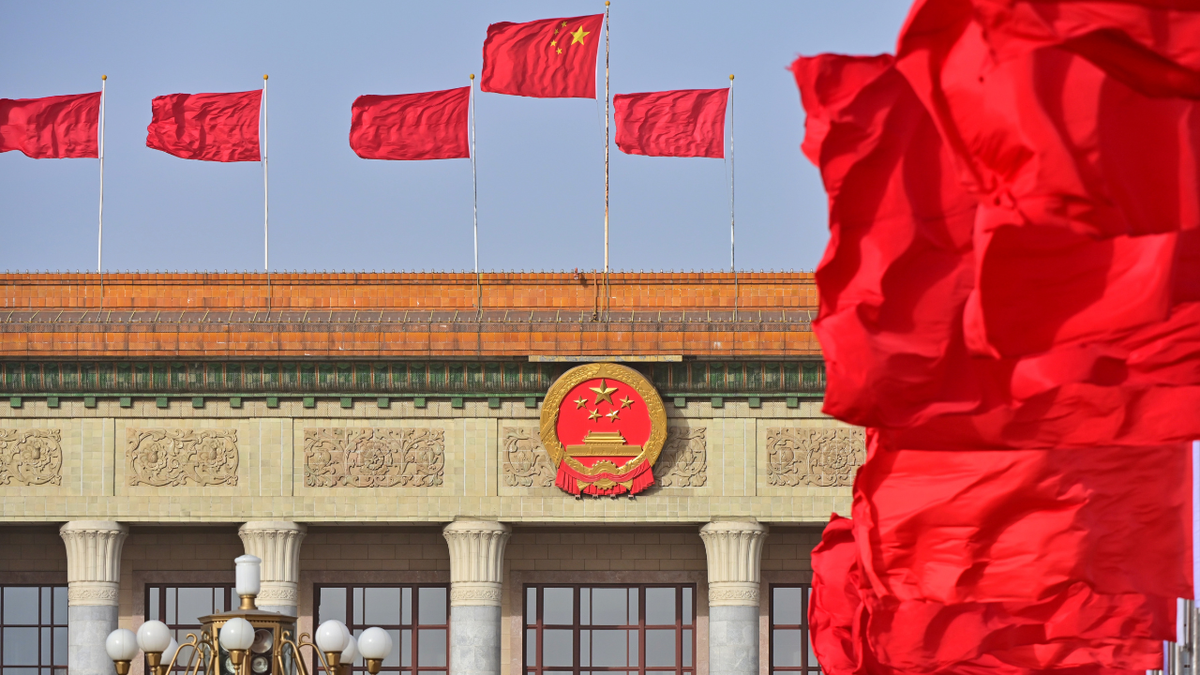
Red flags flutter in front of the Great Hall of the People on March 4, 2022, in Beijing, China. (VCG/VCG via Getty Images)
The forum at the Ronald Reagan Presidential Library, which is nestled in California’s Santa Susana Mountains and the Simi Hills, kicked off on Thursday evening, and featured more than a dozen discussions and panels focused on the economy, artificial intelligence, U.S. defense strategies, the energy sector and more across Friday. Banking leader Jamie Dimon of JPMorgan Chase, Energy Secretary Chris Wright and former Treasury Secretary Steve Mnuchin were among those who joined Rounds in addressing the nation’s economic health.

The Reagan library’s retired Air Force One jet is showcased in a pavilion. (Fox News Digital)
«The Reagan Library does an excellent job working on defense issues, and now they’ve also opened up a seminar basically working on economic issues critical to the United States. And so to come in here and to work with other people that care about the economic well-being of our country, this is an excellent place to do it.… So it’s an opportunity for me to really learn what’s going on and what other people are thinking about our economy in general,» Rounds told Fox Digital of the forum.
JPMORGAN’S JAMIE DIMON CALLS ON US TO STOCKPILE BULLETS, RARE EARTH INSTEAD OF BITCOIN
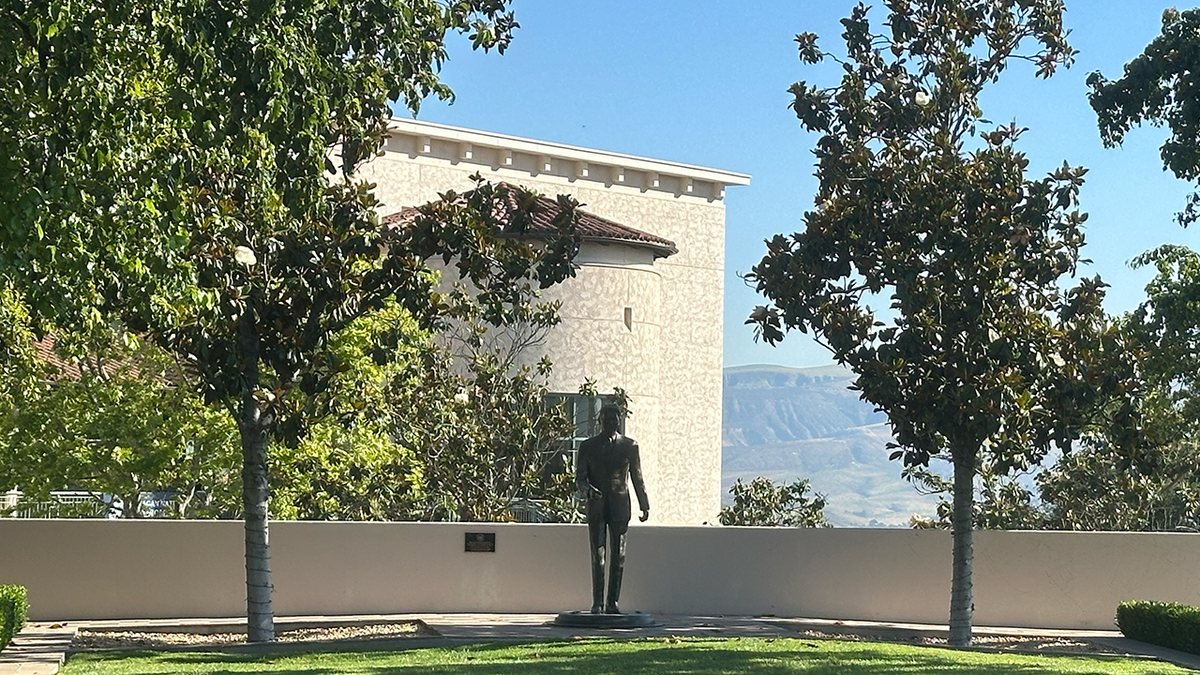
A statue of the former president at the Ronald Reagan Presidential Library.
The conference comes as the Senate works to pass the Big Beautiful Bill, which is a sweeping multitrillion-dollar piece of legislation that advances Trump’s agenda on taxes, immigration, energy, defense and the national debt. Rounds said the legislation must pass or Americans will see their taxes spike.
CLICK HERE TO GET THE FOX NEWS APP
«We don’t have a choice. We have to pass the bill to get the Tax Cuts and Jobs Act back in place on a permanent basis. If we don’t do that, the average American family is going to see about a $2,400 a year increase in their taxes. So we have to do something. And it’s critical that we pass this bill. We’re going to work with the House. We’re gonna get this deal done. The Senate will put their mark of approval on it, but nonetheless, we want to do everything we can as quickly as we can to take care of this so that we can get on to other things. The president has made it very clear he wants to get this done. We want to help in that regard. This is our job,» he said.
China,Senate,Regulation,Trade,Economy
-

 DEPORTE1 día ago
DEPORTE1 día agoA qué hora se juega el PSG vs. Inter de Milán por la final de la Champions League
-

 SOCIEDAD2 días ago
SOCIEDAD2 días agoLos famosos reaccionaron a los polémicos dichos de Diego Spagnuolo, titular de la Agencia Nacional de Discapacidad
-

 ECONOMIA2 días ago
ECONOMIA2 días agoCelebra Caputo: dos consultoras midieron la inflación de mayo por abajo del 2%, la menor en 5 años


















